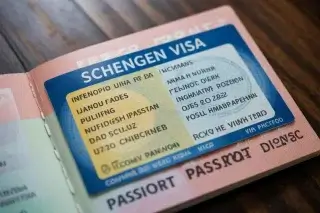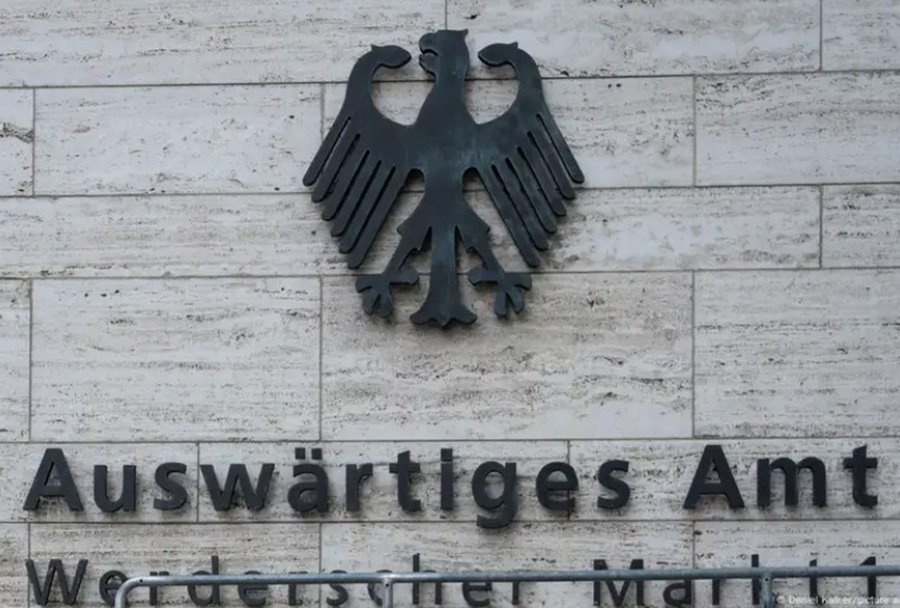read also
 Storm Kristin Reprices Portugal Property Risk
Storm Kristin Reprices Portugal Property Risk
 London Heathrow Airport: 228 Delays and 48 Flight Cancellations
London Heathrow Airport: 228 Delays and 48 Flight Cancellations
 Batumi Housing Market: Prices Rose by 17% in 2025 — TBC Capital Report
Batumi Housing Market: Prices Rose by 17% in 2025 — TBC Capital Report
 Spain’s Property Market Tops 700,000 Home Sales in 2025
Spain’s Property Market Tops 700,000 Home Sales in 2025
 Corruption Perception Deteriorates Across Southeast Europe
Corruption Perception Deteriorates Across Southeast Europe
 EU Plans Schengen Visas Beyond Five Years
EU Plans Schengen Visas Beyond Five Years
Germany Resumes Humanitarian Visa Program: No Fast-Track Processing

Photo: DW.com
Germany is lifting the freeze on issuing humanitarian visas to foreigners. The German Foreign Office and Interior Ministry [leech=https://www.dw.com/ru/mid-germanii-poobesal-razmorozit-vydacu-gumanitarnyh-viz-rossianam-i-belorusam/a-73742187]confirmed[/leech
] to DW that the moratorium has ended for applicants facing danger due to their work in defending democracy, human rights, and freedom of speech. However, the government will not reinstate a separate fast-track process for citizens of specific countries such as Russia and Belarus.
The announcement was first made on August 23 by Michael Novak, head of the German Foreign Office’s Russia and Belarus department, during the ministry’s Open Day. He noted that the conditions are still being discussed between ministries, with no deadlines or details set. MEP Sergey Lagodinsky also wrote on social media that humanitarian visas for Belarusians and Russians would resume.
Since May 2022, 2,490 Russians entered Germany on this basis, along with 410 Belarusians since March 2021. Historically, Germany accepted up to 3,000 people annually from Turkish refugee camps. After the Taliban takeover, a special program for Afghans at risk was launched. Between 2017 and 2022, similar schemes also covered Syrian refugees from Turkey. In total, about 34,700 people arrived under these humanitarian initiatives.
Special humanitarian intake for Afghan staff who worked with German ministries, universities, NGOs, and media had existed since 2013, including families under threat. During the Kabul evacuation in August 2021, journalists, human rights activists, and judges were also included.
Regional programs (Landesaufnahmeprogramme) allowed refugees—mainly from Syria, Afghanistan, and Iraq—to join relatives in Germany if financial guarantees were provided. Some German states also accepted UNHCR referrals from Egypt, Lebanon, and Jordan under the EU Resettlement Programme.
Section 22 of the Residence Act has long allowed individual humanitarian admissions for people under exceptional danger due to opposition or human rights work. An accelerated mechanism once applied to Russians, Belarusians, and Iranians, but each case was reviewed individually and never guaranteed entry.
In July 2025, these procedures were suspended. The legal basis for resuming the program will be §22.2 of the Residence Act (Aufenthaltsgesetz), allowing entry if it serves Germany’s political interests. Authorities emphasized that no nationality-specific fast-track scheme will return.
The German government clarified that humanitarian visas remain an important foreign policy instrument, but expedited processing for Russians, Belarusians, and Iranians will no longer apply. Previously issued humanitarian residence permits under §22.2 will continue to be automatically extended by local authorities.
Migration rules have tightened under the new government. Germany already abolished the three-year citizenship track, though the shortened five-year requirement remains for now. Family reunification has also been restricted.
In 2024, Germany granted citizenship to 291,955 foreigners—up 46% from 2023 and the highest since 2000. Syrians made up 28% of new citizens (83,150 people), followed by Turkey (22,525), Iraq (13,545), Russia (12,980), and Afghanistan (10,085). Russian naturalizations grew sixfold year-on-year.
The average residency period before naturalization was 11.8 years, but for Syrians it was only 7.4. Most naturalizations (86%) came from family cases, while 7% used fast-track procedures for integration achievements. Another 4,130 cases involved stateless persons—22% of Germany’s total stateless population.
Подсказки: Germany, humanitarian visa, migration policy, residence permit, Russia, Belarus, Iran, EU, citizenship, immigration rules


